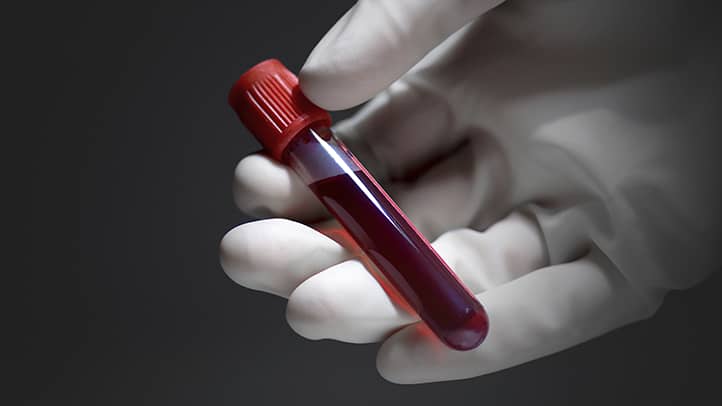A cancer diagnosis is often more complicated than the treatment itself. The chances of a successful cancer treatment are higher when it is diagnosed in time. Unless there is already a symptom that hints at the presence of cancer, the traditional invasive biopsies for the diagnosis are not performed. In a lot of cases, cancer goes unnoticed until it reaches an uncurable stage. Researchers at the University of California, Los Angeles have developed a computer program that uses the biomarkers in a patient’s blood sample and pins the potential location of a tumor.
Researchers have been trying to use the biomarkers in a blood sample for detecting signs of cancer, for a long time now. These include RNA profiles, platelets, elevated protein levels, and the scars left by tumors on white blood cells.
The idea of cancer detection through blood cells seems well established, and the program created by the UCLA team exploits the same concept but uses a different marker. DNA methylation is the process through which cells express genes. When cancer begins to grow, it interrupts the process thus silencing the genes giving the tumor a better chance at survival. UCLA researchers created a program called CancerLocator that studies the molecular patterns formed due to the interruption in methylation process. These patterns when compared with the database of methylation profiles, can be used to identify cancer, its type, and location. The research was published in the journal Genome Biology.
After studying a variety of cancer types, the researchers compiled a database of methylation process for all of these. The database included markers to indicate the organ in which the tumor resides. To make a clear comparison, the database included markers of the healthy samples as well. The healthy samples help separate tumor DNA from the non-tumor DNA.
Co-author of the study, Jasmine Zhou says, “Non-invasive diagnosis of cancer is important, as it allows the early diagnosis of cancer, and the earlier the cancer is caught, the higher chance a patient has of beating the disease. We have developed a computer-driven test that can detect cancer, and also identify the type of cancer, from a single blood sample. The technology is in its infancy and requires further validation, but the potential benefits to patients are huge.”
The program was tested against two other algorithms called Random Forest and Support Vector Machine. All three were used for analyzing blood samples from 46 different cancer patients. All tests were performed ten times to achieve consistent results. 29 of all the test patients had liver cancer, 12 suffered from lung cancer while five were patients of breast cancer.
25 of the liver cancer and five of the lung cancer patients had early stage tumors. CancerLocator was successful in spotting biomarkers in 80% of these patients. According to the researchers, detecting relatively low levels of tumor DNA at early cancer stages shows the potential of the algorithm. The algorithm, however, did not perform very well for the breast cancer diagnosis, even though it performed better than the two other algorithms.
Explaining the diagnostic abilities of the algorithms and the challenges, Zhou said, “Owing to the limited number of blood samples, the results of this study are evaluated only on three cancer types (breast, liver, and lung). In general, the higher the fraction of tumor DNAs in blood, the more accurate the program was at producing a diagnostic result. Therefore, tumors in well-circulated organs, such as the liver or lungs are easier to diagnose early using this approach, than in less-circulated organs such as the breast.”
Even if the results of the CancerLoactor are not 100% accurate, the test sounds very promising, and we can expect the algorithm to be further improved in the future to include other types of cancer as well.


